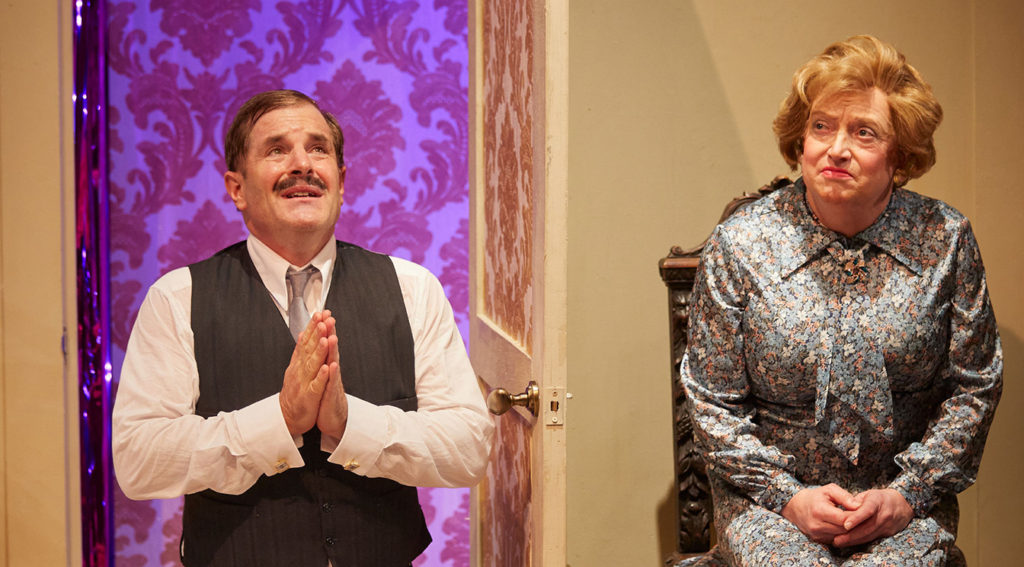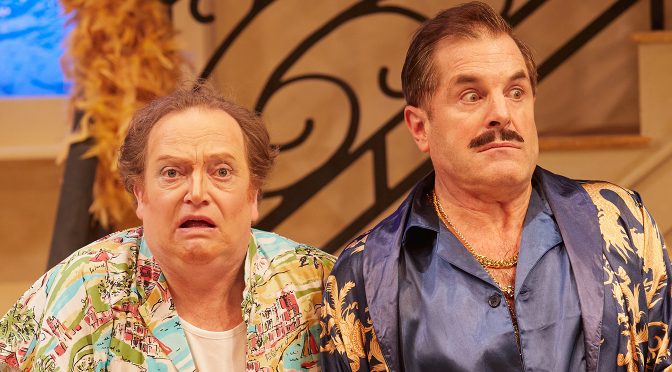Jean Poiret’s French comedy of manners with a drag twist has never been translated into English before. That’s a surprise given its enormous stage success, along with the two films and hit musical it has spawned. Thankfully, director Jez Bond thought the lack a shame – I agree – and has recruited Simon Callow to produce a script that works a treat.
There are bold decisions behind the production, namely, to make the show gloriously old-fashioned. Time and place – the French Riviera in the early 1970s – are enforced; there’s even a reference to the UK joining the EU. As a result, there are plenty of attitudes that seem archaic. The play makes for an interesting history lesson, if you want one, just in case anyone forgets Drag can be political. And you might find the role of Jacob the servant (which Syrus Lowe tackles well) intriguing. If a lot of the gender politics is worlds away from being “woke”, maybe it’s best to just shrug and feel smug that things are better now.
There’s nothing serious about La Cage aux Folles. It only makes sense to judge it as silly and this is good nonsense. The plot is clear while crazy touches build well. The jokes are good, although in truth it’s the performers rather than the lines that get the laughs. No matter, it’s a fun evening and all the more credit to Bond and his cast.

Paul Hunter and Michael Matus play the flamboyant couple, performer and owner of the titular nightclub, with assurance. Their insults and rows are enjoyable and both performers make the most of every moment. Arthur Hughes is good as their son, Laurent, whose future marriage drives the plot: it’s a tricky role that needs to introduce an amount of restraint to proceedings. There’s also strong support from Mark Cameron and Simon Hepworth.
The fun doesn’t increase quite as much as you might hope. As our heroes meet their conservative future family, hosting them for a disastrous dinner party, the second act feels skimpy. Female characters get a raw deal. But Hunter and Matus keep up the energy with some quick transformations adding fun. Remarkably, the play manages to escape the shadow of its famous progeny to show itself as a fine farce in its own right.
Until 21 March 2020
Photos by Mark Douet

